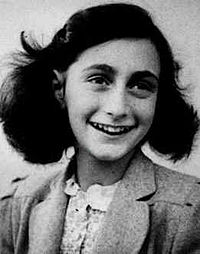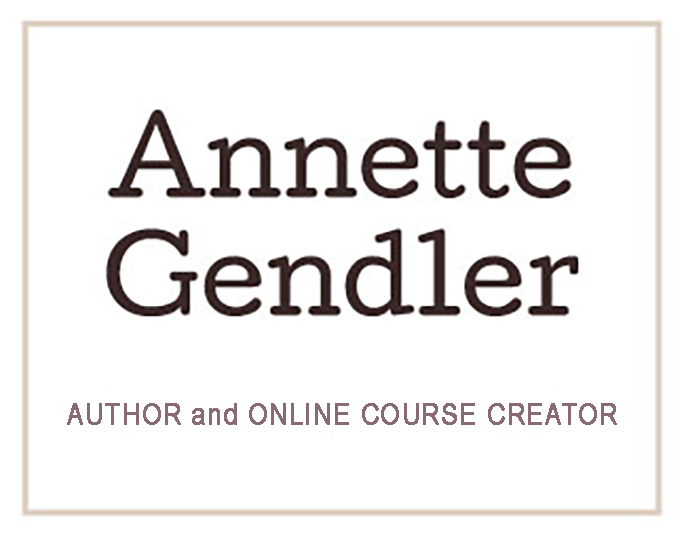I love it when students share their concerns with me and ask questions that I am sure many writers ask themselves. Today I am sharing one such question (with my student’s consent) because it is an important one for anyone who embarks on writing a personal story:
Question: There are a lot of terrible things going on in the world. I feel selfish for writing about myself and my “problems.” There are probably millions of people who would switch lives with me to get out of their war-torn countries and have a roof over their head. We are constantly beaten over the head with bad news, and it just seems like my story is just adding to the seemingly never ending bad news that comes out of life.
What happened to me was a traumatic and life-changing experience, but I think some people would be willing switch places with me to alleviate their own suffering. Have you dealt with these issues while writing memoir? If so, how have you handled them?
 |
| Anne Frank in 1942 |
My Answer: I would say most writers, and indeed most writers of personal stories, be it memoir or personal essay, ask themselves these questions: Is my story worthy of being told?
In my opinion, everybody’s story is worthy of being told.
It is not only horror and trauma that are worthy of a story. Rather, it is much more important to tell a story of survival, like yours
.
It is also important to tell stories of dealing with everyday life, as that’s what concerns most of us.
We want to learn from memoir, want to gain insight, and we find the human connection in the universal experiences we share.
Stories of war are one thing, but many of us are fortunate not to have to live through something like that. Of course stories that give that historical record are hugely important. However, stories of surviving and creating a new life after a serious illness or injury are much more likely to happen to anyone in our society, and are therefore valuable.
A memoir does not have value just because it tells a terrible story; it has value because of what it meant to the narrator, and how the narrator overcame whatever difficulties were put in his path.
A good story can be on a big topic, or it can be on a small topic. What matters is whether it has enough universality for the reader to make a connection and to take something away from the reading experience.
Many memoirs are of course sensational, especially memoirs by politicians or celebrities. In most of those cases, the point of the book is to set the record straight, or to tell their side of events that are probably already known to the reader. The interest here is the inside scoop, or “my part of the story,” rather than insight or “what I learned from this.”
With a literary memoir, the point is insight and meaning from whatever experience is being related.
Hopefully the writer is able to offer those insights so that someone who might be going through a similar experience can learn something, or someone who will never go through it will get an idea of what it’s like.
Think of the most popular book about the Holocaust: The Diary of Anne Frank.
Of course her fate was terrible, and yet that book is really quite ordinary, it shows that a 13-year-old girl is still concerned with boys and everyday issues, even if she’s in hiding from the Nazis.
People can connect with that much more than any history book, because everybody was 13 years old at some point.

Great, needed thoughts, Annette. Thank you!
Dass jede Geschichte Wert ist, erzaehlt zu werden, habe ich schon bei meiner Magisterarbeit gelernt, als ich die Lebenslaeufe unbekannter deutscher Auswanderer zu Papier gebracht habe. Gerade weil sie unbekannt sind, haben sie das grosse Mosaik des Lebens bereichert. So traegt letztlich jede Geschichte dazu bei, das Leben in seiner unglaublichen Vielfalt zu erfassen. Und ich liebe es, Geschichten kennen zu lernen, die sich bis dahin im Verborgenen zugetragenen haben. Das finde ich besonders spannend. Danke dir fuer deine mich bestaetigenden und ermutigenden Gedanken zu dem Thema.
It's the question I ask every time I try to work on my memoir and find myself saying "why bother." My story isn't tragic. I often say "Others have had it worse." But I try to look at it from a writer's perspective and not my personal perspective — the tale is in the telling. The most mundane matters can hold universal significance if told well. And then I begin the battle with the story again.
Well said and I agree completely! Every story is one worth being told…
I disagree, sort-of. To paraphrase Flannery O'Connor – we are not discouraging enough writers. There are plenty of stories that are not worth telling. However, I think it is the way in which they are told that makes them unworthy – not the subject matter itself necessarily.
Well, V.S. Pritchett said: "It's all in the art; you get no credit for living." Writing is indeed about how to tell a story because not everyone who has a story knows how to tell one, and the smallest incident can be made into a story if you know how.
what a superb answer to your student's question. I found the answer very helpful. My favorite memoirs are actually the ones which no one else may pick up- because they are not necessarily about tragedy or trauma- but rather about life…and lessons learned.
Once again- great update!
LOVE this answer! Thank you for sharing the question and giving your wisdom behind the answer.